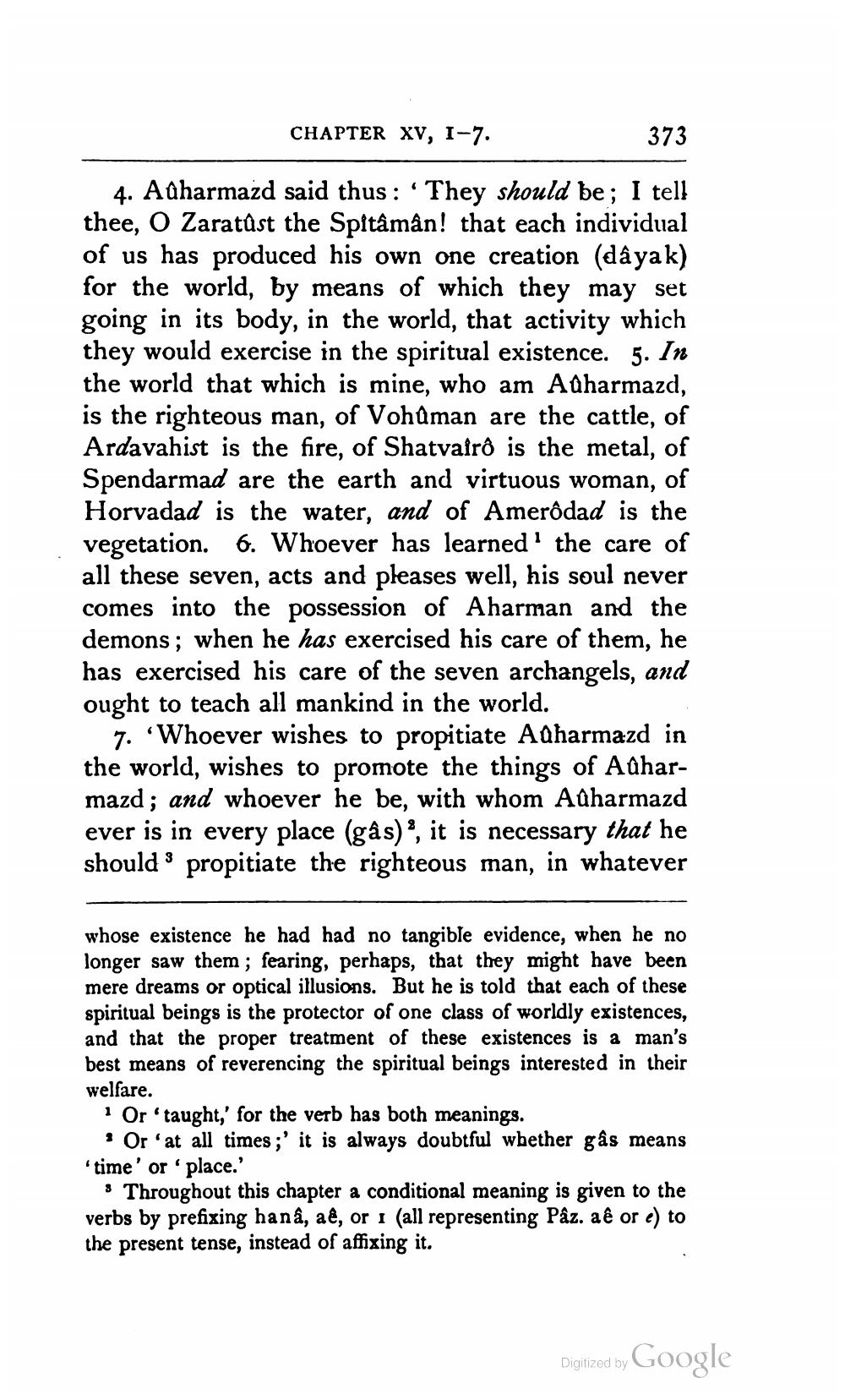________________
CHAPTER XV, 1-7.
373
4. Adharmazd said thus: They should be; I tell thee, O Zaratust the Spitâmân! that each individual of us has produced his own one creation (dâyak) for the world, by means of which they may set going in its body, in the world, that activity which they would exercise in the spiritual existence. 5. In the world that which is mine, who am Adharmazd, is the righteous man, of Vohuman are the cattle, of Ardavahist is the fire, of Shatvairô is the metal, of Spendarmad are the earth and virtuous woman, of Horvadad is the water, and of Amerôdad is the vegetation. 6. Whoever has learned the care of all these seven, acts and pleases well, his soul never comes into the possession of Aharman and the demons; when he has exercised his care of them, he has exercised his care of the seven archangels, and ought to teach all mankind in the world.
7. Whoever wishes to propitiate Adharmazd in the world, wishes to promote the things of Allharmazd; and whoever he be, with whom Adharmazd ever is in every place (gâs), it is necessary that he should propitiate the righteous man, in whatever
whose existence he had had no tangible evidence, when he no longer saw them ; fearing, perhaps, that they might have been mere dreams or optical illusions. But he is told that each of these spiritual beings is the protector of one class of worldly existences, and that the proper treatment of these existences is a man's best means of reverencing the spiritual beings interested in their welfare.
i Or 'taught,' for the verb has both meanings. • Or at all times ;' it is always doubtful whether gâs means time' or 'place.'
s Throughout this chapter a conditional meaning is given to the verbs by prefixing hanâ, aê, or 1 (all representing Pâz. aê or e) to the present tense, instead of affixing it.
Digitized by
Digitized by Google




